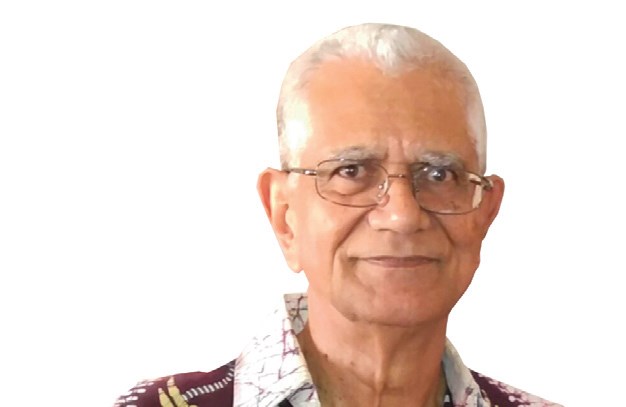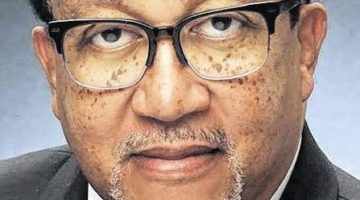Christopher Columbus, famed for centuries as an epoch-making explorer, was actually a lost ship’s captain who wandered the seas in search of a destination he never found.
Columbus’ journey into the history books began in the summer of 1492 when, Jack Weatherford wrote in his book “Mongol Queens,” he sailed from Europe to deliver a letter from Queen Isabella and King Ferdinand of Spain to the powerful khan or ruler of Mongolia. Because that monarch’s name was unknown to the Spanish, a blank space was left to be filled out upon receipt.
The letter was never delivered. Instead of sailing to Asia, where the Mongols live, Columbus ended up in places such as Cuba, Puerto Rico, Honduras and small Caribbean islands. “None of the natives could tell him the name of the Great Khan and, when Columbus died in 1506, he still had come no closer to finding the court of the Mongols or even the names of the rulers.” Weatherford related.
Still, The Guardian reported, after returning to Spain, Columbus wrote to the royal treasurer Luis de Santángel: “I sailed to the Indies with the fleet that the illustrious King and Queen, our sovereigns, gave me, where I discovered a great many islands, inhabited by numberless people. Of all, I have taken possession for their Highnesses.”
“By “Indies,” Columbus evidently meant India where he no doubt thought the Mongols lived so he assumed he arrived in the East, whereas it was the West. That has come down in history as a distortion of the ages: that there was an east India and a west India, hence the name “West Indies.” As some wags have put it, “Christopher Columbus set sail for India and discovered the West Indies.”
Columbus became “a brutal colonial governor and viceroy, who would systematically exploit the Taíno people of the Caribbean, forcing them to mine gold and deliver quotas on pain of harsh punishment,” The Guardian has noted. He enslaved hundreds, whom he sent to Spain to be sold; “others were massacred or subjected to extreme violence and cruelty. . . . Some also caught deadly diseases such as smallpox and measles, brought by the Spaniards. It is estimated that, within a few decades of Columbus’ arrival, most of the Taíno had died from enslavement, massacre or disease.”
Soon European powers went on an “exploration” and “discovery” frenzy that led to colonialism, imperialism, genocide and their brutal domination of much of the world that yielded riches beyond their wildest imagination: Britain, Denmark, France, Italy, Netherlands, Norway, Portugal, Russia, Scotland, Spain and Sweden.
In several countries, some of which actually suffered from the postColumbus crimes against humanity, monuments and other memorials were erected to honor him and celebratory occasions were observed glorifying European culture and achievements, including in the United States.
In 1893, when Chicago hosted the World’s Columbian Exposition to mark the 400th anniversary of Columbus’ voyage, the more than 27 million visitors had an opportunity to read a fair pamphlet that asked: “How shall America best present its greatness to the civilized world?” The show “cemented” Columbus “as a symbol of American identity,” The Washington Post reported. But it also “displayed in cruel and exoticized ways” both Indigenous and the African peoples. Even now, more than 500 years later, Columbus is the third most honored person in the United States, after Presidents Abraham Lincoln and George Washington, although he never visited here, The Post reported. That popularity is credited to Italian Americans – Columbus was an Italian native – and Catholic organizations.
More than 130 monuments celebrate Columbus, according to a Washington Post and MIT analysis, and he is honored in 6,000 public locations and at several private spaces. Wikipedia lists around 212 monuments dedicated to him in 30 other countries. Several observed a Columbus Day holiday, though some eventually dropped his name in favor of honoring cultural diversity, resistance or Indigenous peoples.
Some monuments have been removed, including 40 in the U.S., as people became woke to his legacy. But that trend has sparked a backlash, especially in Republican-led states, where, instead of teaching honest history, a move was started to emphasize the supposed greatness of former colonial powers through “classical education.”
In literature, for example, “while one New York City public high school reading list includes graphic novels, Michelle Obama’s memoir, and a coming-of-age book about identity featuring characters named Aristotle and Dante, in classical schools highschool students read Aristotle and Dante,” The New Yorker’s Emma Green reported.
Two of the movement’s leaders – Association of Classical Christian Schools (ACCS) president David Goodwin and Fox News host Pete Hegseth – believe, Green reported, that “by focusing students’ education on the civilizations that flowed out of ‘the convergence of Greece, Rome, and Hebrew cultures,’ America can recapture the norms it was built on.”
Green added, “Republican politicians have also smelled opportunity in the movement, billing its traditionalism as an antidote to public-school wokeism.” She named Florida’s Gov. Ron DeSantis and Tennessee’s Gov. Bill Lee.
However, Green added, “As more conservatives have flocked to classical education, progressive academics have issued warnings about the movement, characterizing it as a fundamentally Christian project that doesn’t include or reflect the many kids in America who aren’t white, or who have roots outside this country.”
Still, the movement is thriving, so much so that U.S. educators have exported the concept of a superior Western culture to several countries over the past 25 years, including parts of Africa, such as Nairobi, Kenya, where Green reported visiting a school run by an African American missionary couple, Theodore and Crystal Wilson. They had taught at “classical schools” in the U.S. before relocating in 2022. Their school follows the script of the ACCS, which, Green wrote, is the largest and most widely recognized representative of Classical Christian education in the world, with 475 member schools.
In Nairobi, Green reported, “Preschoolers were memorizing a verse from I Samuel. Third-graders took turns reciting lines from ‘The Fisherman and His Wife,’ a fairy tale published by the Brothers Grimm” and “there was a jarring emphasis on Western civilization. In one classroom, the history of music was laid out according to European eras—Renaissance, Baroque, Classical, Romantic— and the walls were decorated with portraits of white European composers.”
More than 60 years ago, The Mighty Sparrow – Grenada-born Francisco Slinger – had something to say about all of this in his “Dan is the Man in the Van” calypso, singing that “in my days in school/They teach me like a fool/The things they teach me/I should be a block-headed mule.”
Sparrow was ridiculing textbooks written by J.O. Cutteridge, such as Nelson’s West Indian Readers First Primer, which were compulsory in schools in British colonies: “The poems and the lessons they write/And send from England/Impress me they were trying to/Cultivate comedians!”
The argument for a classical education is that it teaches the young to think and become intellectually stimulated. But think about what? That a handful of nations came to rule the world and 2,781 persons are worth $14 trillion while most of humankind are starving or locked in unceasing conflict? Or that, despite their supposed intellectual and cultural superiority, Western nations spent centuries convulsed in bloody wars among themselves and then committing atrocities on innocent nations. Or that the flight of millions of the former colonized to the shores of the former colonizers is a direct result of their former exploitation and the persistent instability which it caused?
What next after Aristotle, Homer, Plato? Glorifying Zeus atop high Olympus and Thor and Odin in Valhalla? After all, they, more than anyone else, represent the essence of what is “classical.” And if that sounds far-fetched, who would have thought that a pair of African American teachers would open a school in Africa to teach Western classical education?
Christopher Columbus, wherever he is, must be having one hilarious moment.
Mohamed Hamaludin was born in
Guyana, where he obtained his early education under the British colonial system. After about a decade of teaching, he worked as a journalist in Guyana and the Caribbean, as well on The
Miami Times, The Miami Herald and
South Florida Times, from where he finally retired and for which he has been writing a weekly column for the past eight or so years.












No Comment